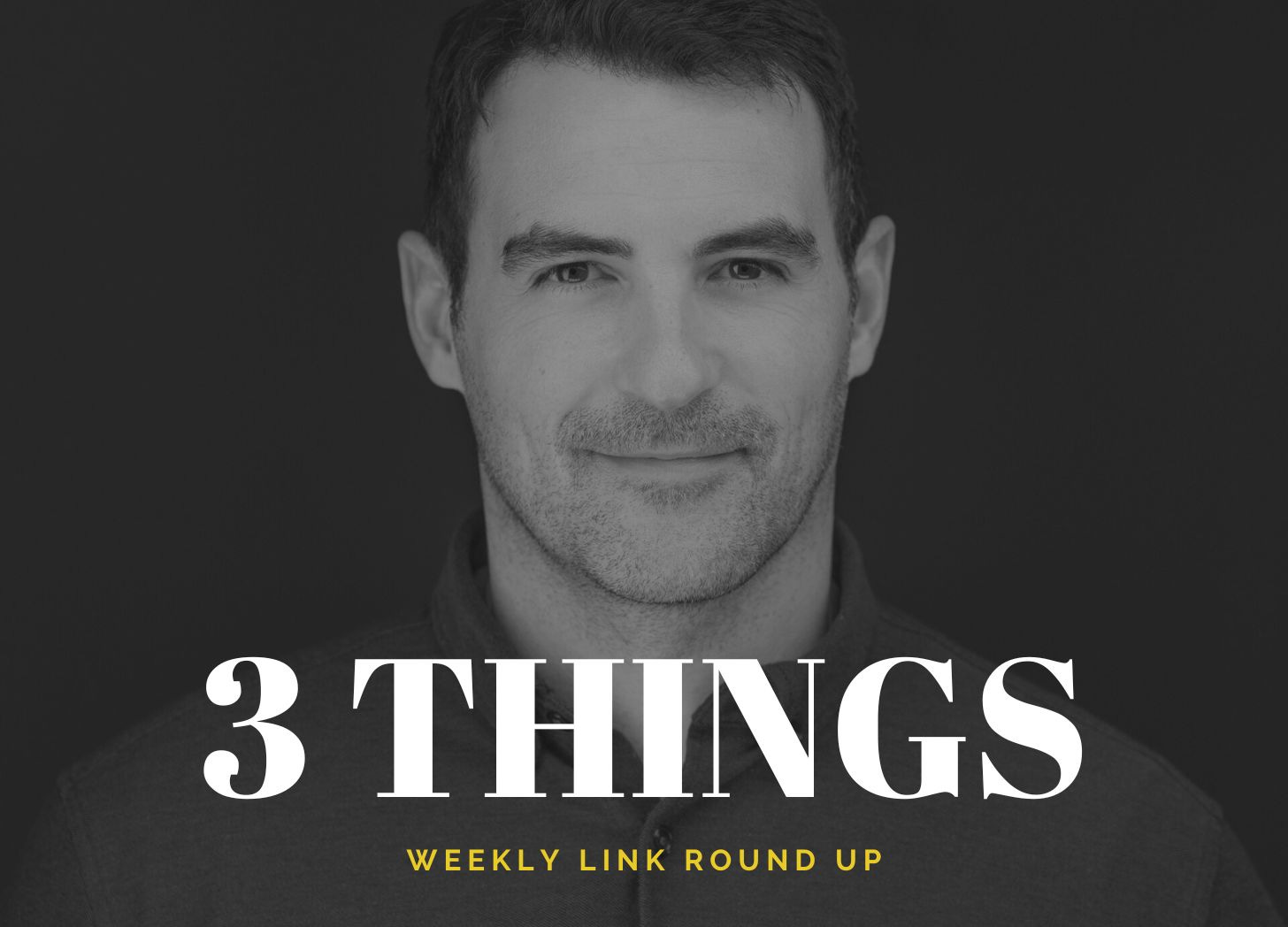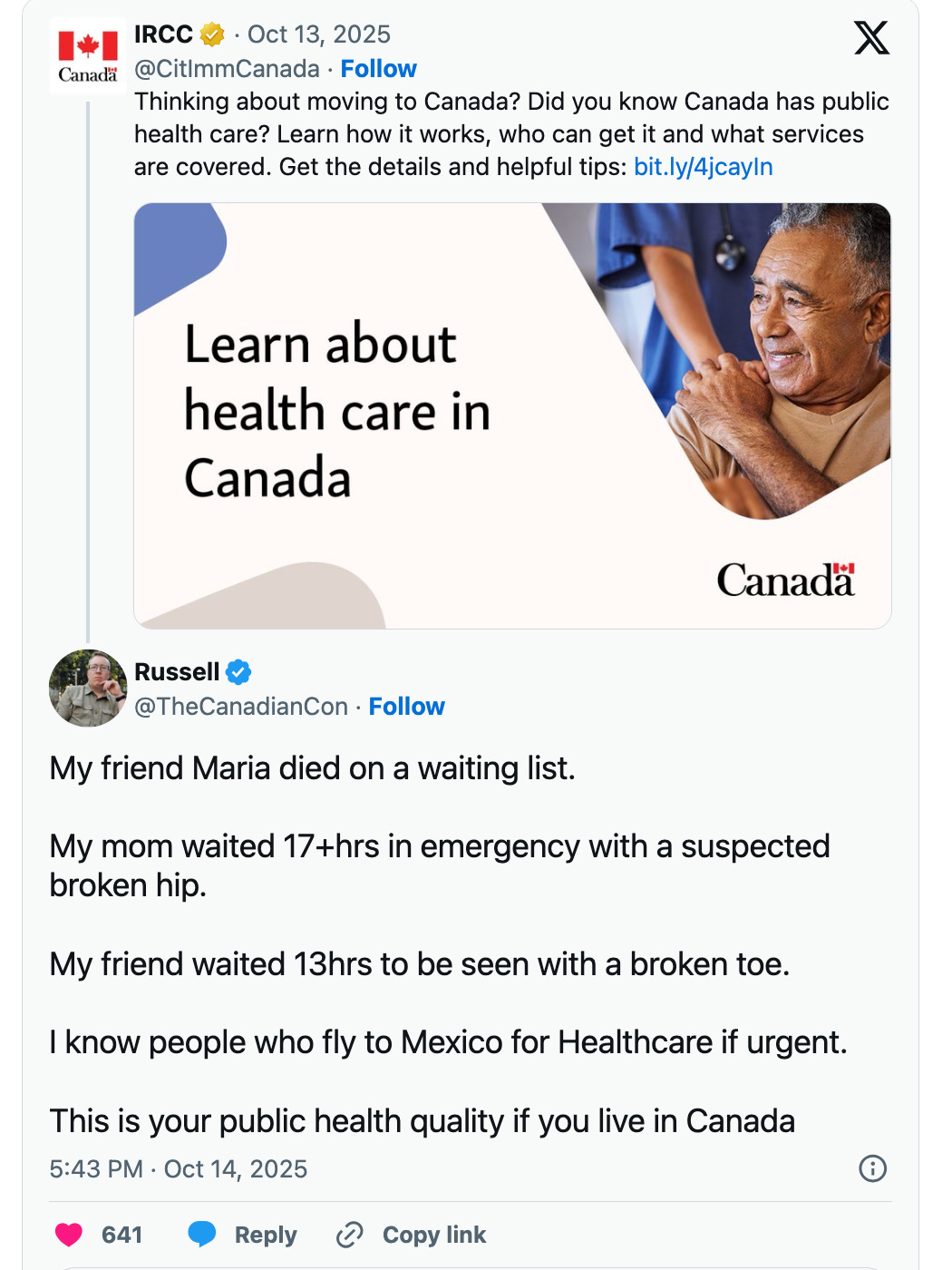I am My Own Marketing Firm; The Diplomat is Back; Limits to Unlimited Hospitality
3 Things this week with a deeper dive into Canada's desire to offer free healthcare
Thanks for spending some time this weekend with Things I Wrote Down. I say a lot in one of the sections below, so may as well just jump right in 😅
Here are three things that stood out to me on the web this week.
I am My Own Marketing Firm
I’m having fun as I create content around the new book I just released (Gather for Advent). If you don’t know yet, I’m an independent author.
That means I don’t have a big marketing firm or publisher behind me. And I pretty much do everything myself, and with the help of friends.
There may be a day when I do. With book tours and the whole shebang, but until then it’s a hustle to share the thing that I worked hard to bring into the world and that I believe in.
It’s often the awkward part of the writing life. So for this book, I’m trying some new things and trying to not take myself so seriously. On social media, that means making videos that poke fun at myself and at the reality of being an indie author.
My bold request of you: If you see the content out in the world as a YouTube short or a Reel on Facebook or Instagram, please hit that like button and share the videos with friends as a DM or repost. Word of mouth is so helpful for indie authors like me!
(Of course I’d love you to buy the book for your family or as a meaningful gift for a friend, because I think it will truly serve your Christmas experience! But you don't need you purchase to help me out. Your social shares mean the world and are a sign of massive encouragement! Thank you!!)
The Diplomat is Back
Speaking of great writing (see what I just did there). The Diplomat is back. The show, starring Keri Russell, hooked me since season one.
It’s got some content to watch out for and to be discerning about (here’s a PluggedIn review to get your bearings). The writing is so smart and sharp. As a life-long lover of shows about US politics, this one is a hit for me.
It also brings together some of the cast of the West Wing. If you’re a fan of that show, you’ll love to see them back together in this.
Limits to Unlimited Hospitality
When Immigration, Refugees and Citizenship Canada posted this ad, it went viral, but not for the reasons they were expecting.
Sitting MPs like Michelle Rempel Garner weighed in on how tone deaf it is to advertise Canada as the world’s walk in clinic, when there are doctor shortages and massive wait times for critical procedures that Canadian citizens and permanent residents need.
Why is a system that can’t even service and care for the current population signalling to the world that a reason to come to Canada is because of our healthcare?
There are a lot of reasons, among them a basic disconnect between bureaucracy, marketing teams and firms hired to run comms for departments and ministries that are siloed from each other, who determine comms plans and budgets. However, I think there’s something deeper, hardwired into the Canadian experiment that is worth highlighting here.
The post made me think a lot this week about the concept of “Unlimited Hospitality” and the liberal humanist inclination to be cosmopolitan.
In the West, we’re inheritors of 18th century political philosophy, especially, since the founding of the French and British republics. Our cultures are shaped by documents like
The Bill of Rights (which, in 1689 limited the monarch’s power and asserted rights of the average citizen)
The Declaration of the Rights of Man and Citizen (which the French Assembly introduced one hundred years later in 1789).
The UN Charter of Rights and Freedoms, signed in 1945, and Canada’s Charter of Rights and Freedoms, signed in 1982, wouldn’t exist without these earlier Charters. We live with the belief that people have unalienable rights.
But what happens when you’re displaced, forced out of your home or nation by conflict. What about the rights of refugees?
Jacques Derrida, whose thinking has shaped the minds of academics and policy-makers for the better part of the last century, contended with the idea of unlimited hospitality and the responsibility that cities have to refugees and immigrants in his essay “On Cosmopolitanism.”
Derrida draws a distinction between between two types of hospitality—conditional and unconditional.
Conditional hospitality “is regulated by laws, norms, and borders” and a host (think country or nation-state) “retains sovereignty and sets the terms under which a guest (the foreigner) is received, ultimately reserving the right to expel them.”1
Unconditional hospitality is aspirational, an ethical ideal that “demands an absolute, welcoming “yes” to the stranger, without conditions, reciprocity, or any demand for identification. It is a hyperbolic and risky notion, as it requires opening one’s home or nation to the unknown, even to a potential threat.”2
There’s a tension between the ideal and the lived reality. Mainly, because resources are limited. He argues that we’re always negotiating between the two, and that with the ideal (unlimited hospitality) will shape the conditional hospitality nations provide.
Okay. So what?
I’m merely bringing it up here, to highlight how deeply engrained this thinking is in modern, liberal Western society. It’s at the heart of the controversial Sanctuary City in the USA currently embattled as immigration laws are enforced and the limits of civic hospitality are tested.
And clearly, the advertisement of Canada’s Ministry Immigration, Refugees and Citizenship, is centred in the belief that Canada should be hospitable. Look at the order of the Ministry itself: Immigration, Refugee, Citizen. As a nation we’re set up to increase our population primarily through the immigration pipeline.
And we advertise healthcare as a main draw. “Come here. Get it for free.”
On face value, it’s all wonderful. How ideal if it were true that healthcare could be so available, free, and serve everyone in the country, including people motivated to arrive and become Canadians. But our aspirations don’t meet our current reality, and the responses to the post on X just scratch the surface of how Canadians experience health care.
One response, by the editor of Correspondence Theory, summed up experiences many Canadians have at the emergency room or healthcare centres across the country:
It’s significant that we’re a nation that wants to welcome others in and show hospitality. What a thing to be proud of! But we need to recognize the difference between the ideals that should guide us and the realities we face.
It’s time to be honest about what we can and cannot do; what we aspire for and what our reality is.
Read this helpful AI overview of Derrida’s essay. I also drew from notes from my MA studies, in a course called Refugee Narratives, which included in-depth readings of Derrida and Arendt.
See above link, as well as Mark Dooley’s translation of “On Cosmopolitanism”





